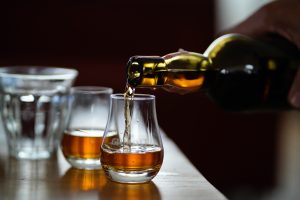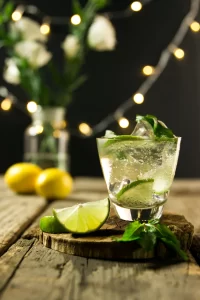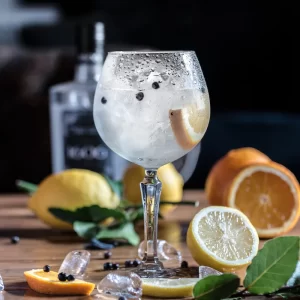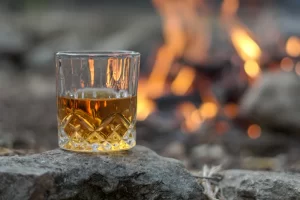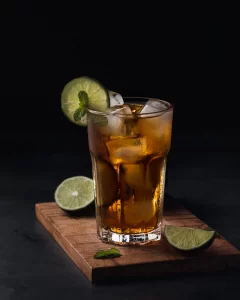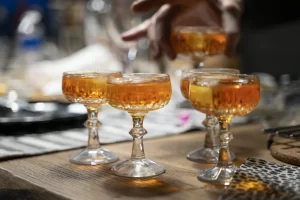Illinois Liquor Laws And Regulations
Starting your own distillery can take a lot of work but it’s vital that you ensure your distillery operates legally. If you are thinking of opening your own distillery in the US state of Illinois, then check out this guide for all the important liquor laws and regulations you need to know first.
This way, you can set up your distilling business and not have to worry about facing fines or legal actions against your business that can land you in trouble!
Licensing Requirements
If you want to manufacture and distill alcohol in the state of Illinois, then you first need a license. Distilling without the appropriate license is illegal in Illinois. In fact, residents can’t even own or operate still for any reason!
You can only distill spirits and liquor for commercial production in Illinois and even then, you need the appropriate license.
First, distilleries and wineries need a Federal Basic Permit from the Alcohol and Tobacco Tax and Trade Bureau (TTB) while breweries, however, need a Federal brewer’s Notice.
Without this permit, you will not be able to apply for your state license and receive legal permission to manufacture and distill alcohol in Illinois. So, this permit is a core requirement!
After that, you must apply for a state license. Each state has its own laws and requirements regarding distillery licenses. In Illinois, you need to go through the Illinois Liquor Control Commission (ILCC) to obtain yours.
However, you need to first work out what type of license you need – and there are a lot to choose from.
Illinois categorizes its alcohol manufacturing licenses into 10 different classes and each varies in regulations and requirements depending on the type of alcohol produced, the amount, and the method. Here’s a list of each license and how it is defined:
| Type Of License | Definition |
| Class 1: Distiller | For distilling, fermenting, brewing, mixing, processing, blending, or bottling alcoholic spirits and beverages to be sold to other distillers, distributors, and rectifiers. |
| Class 2: Rectifier | For making, processing, mixing, blending, or bottling alcoholic beverages manufactured by another party. |
| Class 3: Brewer | For manufacturing beer and selling products to distributors. |
| Class 4: First-Class Wine Manufacturer | For manufacturing wine, selling and delivering up to 50,000 gallons per year to other manufacturers or distributors. |
| Class 5: Second-Class Wine Manufacturer | For manufacturing wine, selling and delivering over 50,000 gallons per year to other manufacturers or distributors. |
| Class 6: First-Class Wine Maker | For manufacturing and storing up to 50,000 gallons per year to sell to distributors, retailers, and people outside of Illinois. |
| Class 7: Second-Class Wine Maker | For manufacturing and storing between 50,000 and 150,000 gallons per year to sell to distributors and people outside of Illinois. |
| Class 8: Limited Wine Manufacturer | Wine manufacturers who use products grown within the state of Illinois, can sell or deliver up to 40,000 gallons per year to distributors or non-licensees. |
| Class 9: Class 1 Craft Distiller | Craft manufacturing of alcoholic spirits and storing up to 50,000 gallons per year, selling to distributors, ability to apply for self-distribution exemption that allows for up to 5,000 gallons per year to be sold to retailers. |
| Class 10: Class 2 Craft Distiller | Craft manufacturing of alcoholic spirits and storing up to 100,00 gallons per year, selling to distributors, 5,000 gallons per year can be transferred to an owned distilling pub. |
If you are looking to open up a spirits distillery, then the licenses most applicable to you are Class 9 and 10, and Class 1.
In addition to these licenses, there are also other licenses you may need depending on how your distillery works. The license most applicable to distilleries specifically is the Distilling Pub License. This license allows a single distillery to manufacture up to 5,000 gallons of spirits each ear.
These spirits can then be sold to consumers at the same location either for on-premises or off-premises consumption. Basically, if you wish to sell your alcohol directly from your distillery in the form of a store or a bar, this is a license you will want to get.
State Fees
Each license comes with its own initial license fee and an annual renewal fee as you renew your license each year. Failure to renew your license will mean that it will expire and you can no longer legally operate your distillery business.
So, you need to pay for your license each and every year – but how much? Check out the list below.
One interesting thing to note is that Illinois allows you to renew your license online or non-online – but renewing your license online will grant you a sort of ‘discount’. So, if you want to save money, renew your license online if possible.
| License/Permit | Online Renewal Fee | Initial License Fee/Non-Online Renewal Fee |
| Class 1: Distiller | $4000 | $5000 |
| Class 2: Rectifier | $4000 | $5000 |
| Class 3: Brewer | $1200 | $1500 |
| Class 4: First-Class Wine Manufacturer | $1200 | $1500 |
| Class 5: Second-Class Wine Manufacturer | $1500 | $1750 |
| Class 6: First Class- Wine Maker | $1200 | $1500 |
| Class 7: Second-Class Wine Maker | $1500 | $1750 |
| Class 8: Limited Wine Manufacturer | $250 | $350 |
| Class 9: Class 1 Craft Distiller | $50 | $75 |
| Class 10: Class 2 Craft Distiller | $75 | $100 |
| Distilling Pub License | $1200 | $1500 |
Distillery Restrictions And Laws
Depending on what type of license you have, your distillery will be expected to meet certain regulations and stay within certain Illinois liquor laws, regulations, restrictions and limits.
Most of the key restrictions are mentioned in the table above, but here they are again for the licenses most important for running a distillery:
- Distilling Pub License – You cannot manufacture over 5,000 gallons of spirits in a single year.
- Class 1 Craft Distiller – You can only manufacture and store up to 50,000 gallons each year. You can apply for a self-distribution license so you can sell up to 5,000 gallons to retailers per year.
- Class 2 Craft Distiller – You can only manufacture up to 100,000 gallons of spirits each year and sell up to 5,000 gallons each year to a distilling pub you also own.
Most restrictions relate to how many gallons of spirits you can distill each year and how much can be sold and where. This means that as your distilling business grows, you may want to upgrade your license so you can make more money.
You can also lose your distilling license if you violate the common liquor laws in Illinois – such as selling alcohol to minors, employing unsupervised minors at your business, etc.
In Summary
So, those are all the liquor laws in Illinois you need to be aware of if you want to start your own distilling business. Make sure you have the right license, that you pay the fees, and stay within the regulations implemented on your business by your license!
